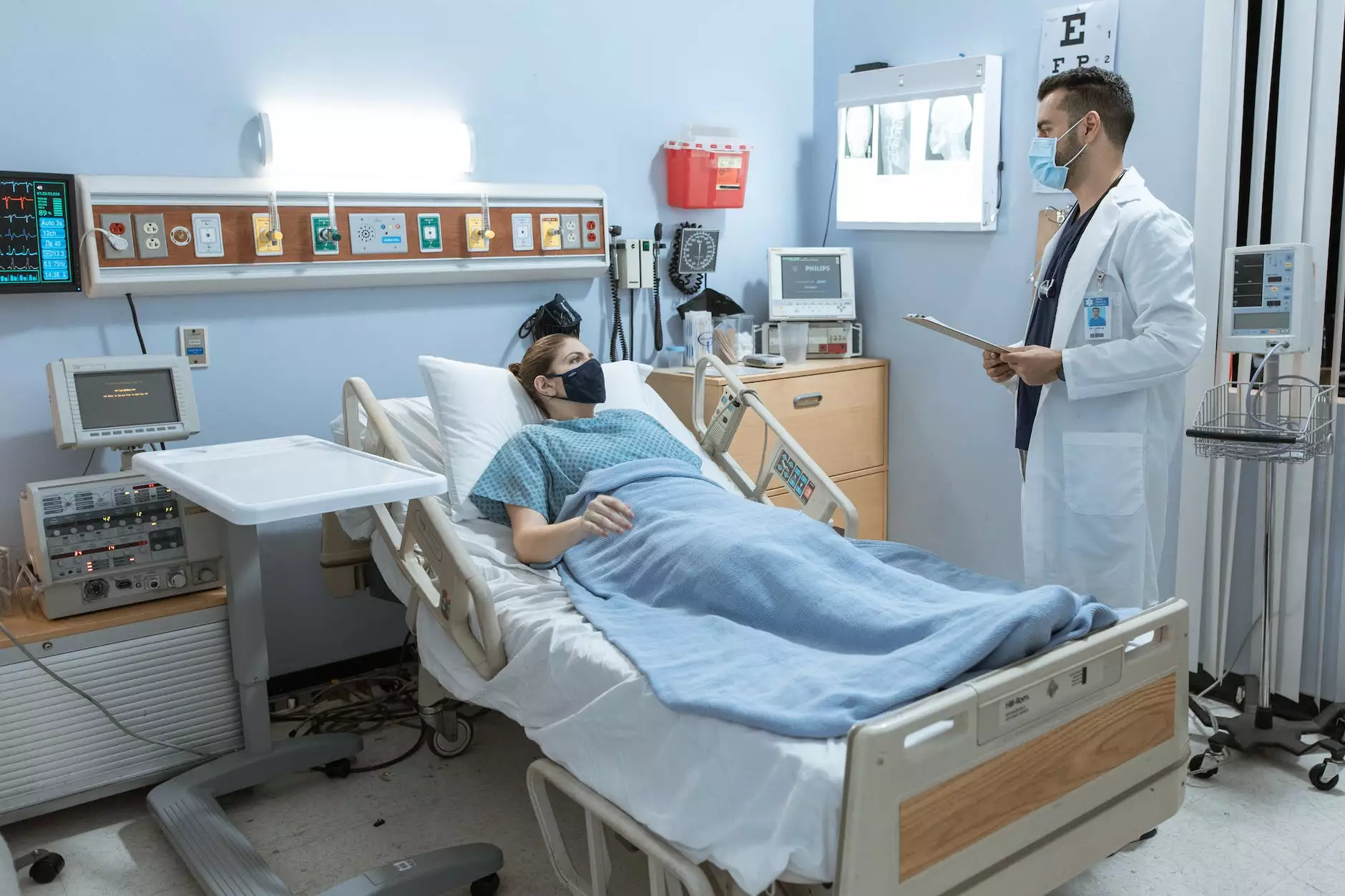Understanding Stomach Cancer Hospitals: Your Comprehensive Guide

When faced with the daunting diagnosis of stomach cancer, patients often find themselves overwhelmed with a myriad of questions and concerns. Understanding the landscape of stomach cancer hospitals is crucial as it plays a vital role in the comprehensive care and management of this challenging disease. This article aims to elucidate the functions, treatment options, and support systems offered by specialized hospitals catering to stomach cancer patients.
The Importance of Stomach Cancer Hospitals
Stomach cancer, or gastric cancer, is a significant health issue that requires specialized medical attention. At a stomach cancer hospital, patients have access to unparalleled resources and expertise geared towards effective diagnosis, treatment, and support.
Why Specialized Care is Crucial
Each type of cancer has its unique characteristics and treatment protocols. Here’s why specialized stomach cancer hospitals matter:
- Expert Medical Staff: Stomach cancer specialists, including oncologists, surgeons, and gastroenterologists, have comprehensive training and experience in dealing with this specific type of cancer.
- Advanced Technology: Facilities at stomach cancer hospitals are often equipped with cutting-edge technology for diagnostics and treatment, including MRI, CT scans, and state-of-the-art surgical equipment.
- Multidisciplinary Approach: Treatment for cancer often requires a combination of therapies. Stomach cancer hospitals provide a collaborative approach where various specialists work together to formulate the best treatment plan for each patient.
Key Services Offered at Stomach Cancer Hospitals
Stomach cancer hospitals provide a wide range of services tailored to meet the diverse needs of patients. These services include:
1. Comprehensive Diagnostic Services
Early detection of stomach cancer significantly affects treatment outcomes. Hospitals focused on this type of cancer utilize various diagnostic methods, including:
- Endoscopic Procedures: Endoscopies allow specialists to visually scrutinize the stomach lining for abnormal growths.
- Imaging Tests: Techniques such as ultrasound, CT scans, and MRI are employed to assess the extent of the cancer.
- Biopsy: Tissue samples are taken for laboratory analysis to confirm the presence of cancer cells.
2. Surgical Interventions
Surgery is often a primary treatment for stomach cancer and can involve:
- Partial Gastrectomy: Involves the removal of a portion of the stomach, often based on the tumor's location.
- Total Gastrectomy: This procedure entails the complete removal of the stomach and is typically performed for more advanced cases.
- Minimally Invasive Techniques: Many stomach cancer hospitals are equipped to perform laparoscopic surgeries, which offer reduced recovery times and minimized scarring.
3. Medical Treatments
Depending on the stage of the cancer, various therapies may be employed, such as:
- Chemotherapy: This systemic treatment uses potent medications to kill cancer cells, commonly administered before or after surgery.
- Targeted Therapy: Newer treatments focus on specific characteristics of the cancer cells and aim to inhibit their growth.
- Radiation Therapy: Localized radiation can be helpful, particularly to shrink tumors before surgery or to target residual cancer post-operation.
4. Palliative and Supportive Care
Stomach cancer hospitals also offer critical support services, which include:
- Nutritional Support: Specialists help manage the dietary needs of patients, which is crucial since stomach cancer can significantly affect appetite and digestion.
- Pain Management: Comprehensive programs assist in alleviating discomfort and enhancing the quality of life.
- Counseling and Psychological Support: Emotional and psychological support is available to help patients and their families cope with the challenges of cancer diagnosis and treatment.
Choosing the Right Stomach Cancer Hospital
Selecting the right hospital is a pivotal decision in a patient's cancer journey. Consider the following factors when choosing a stomach cancer hospital:
1. Accreditation and Reputation
Ensure the hospital is accredited by relevant medical boards and associations. Research patient testimonials and success rates to gauge the hospital's reputation.
2. Multidisciplinary Team
A hospital with a strong team of specialists from various fields can offer a holistic approach to treatment. Inquire about their experience specifically in treating stomach cancer.
3. Access to Clinical Trials
Many stomach cancer hospitals participate in clinical trials that offer cutting-edge therapies and medications not widely available.
4. Support Services
An ideal hospital provides comprehensive support services, including nutritional counseling, mental health support, and pain management, to ensure patients have a robust support system.
Latest Advances in Stomach Cancer Treatment
The field of oncology is constantly evolving, with research leading to groundbreaking advancements in treatments. Some of the latest innovations include:
1. Immunotherapy
Immunotherapy has emerged as a revolutionary approach, utilizing the body’s immune system to fight cancer. Certain drugs are designed to help the immune system recognize and attack stomach cancer cells more effectively.
2. Personalized Medicine
Genomic testing allows doctors to understand the unique characteristics of a patient's cancer, facilitating tailored treatment plans that are more effective.
3. Improved Surgical Techniques
Robotic surgery and laparoscopic techniques have greatly enhanced the surgeon's ability to perform minimally invasive procedures, which often result in quicker recovery times and reduced hospitalization.
Living with Stomach Cancer: The Patient Experience
Living with stomach cancer entails much more than medical treatment; it encompasses a whole lifestyle change and a psychological journey. Here are key aspects of the patient experience:
1. Understanding Diagnosis and Treatment Options
Patients should feel empowered to ask questions and fully understand their diagnosis and the various treatment options available. Knowledge is a powerful ally in navigating this journey.
2. Importance of Support Systems
Emotional and practical support from family, friends, and support groups can significantly improve a patient's outlook and resilience during treatment.
3. Coping Mechanisms
Finding effective coping strategies, such as engaging in hobbies, practicing mindfulness, or joining support groups, can aid in managing stress and enhancing well-being.
Conclusion: Empowering Your Journey through Stomach Cancer
In summary, understanding the role of stomach cancer hospitals is paramount for patients facing this formidable disease. With advanced medical treatments, a robust support system, and a focus on holistic care, these specialized hospitals offer hope and a path towards recovery.
If you or a loved one is seeking assistance, it is essential to consult with a reputable stomach cancer hospital to explore available treatment options and support services. Remember, you are not alone in this fight, and expert care is at your fingertips.









